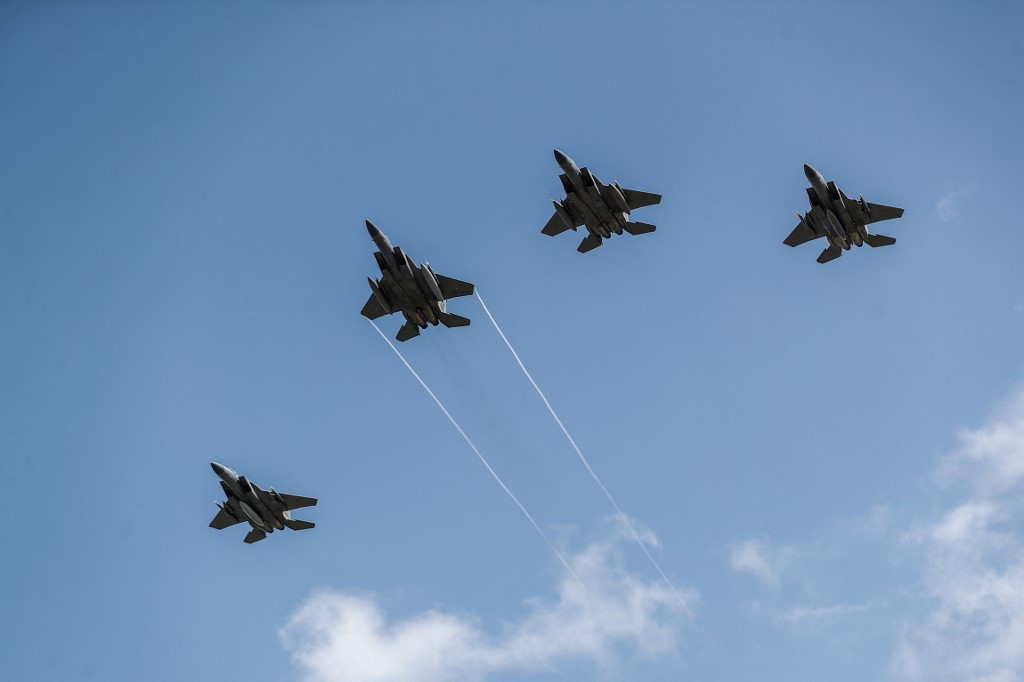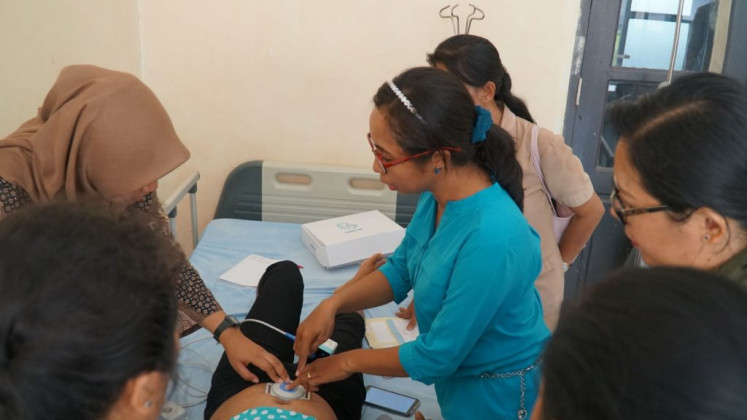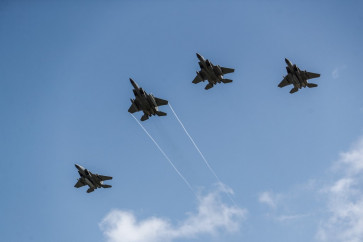Popular Reads
Top Results
Can't find what you're looking for?
View all search resultsPopular Reads
Top Results
Can't find what you're looking for?
View all search resultsWhat’s behind Indonesia’s choice of F-15, Rafale and its implications
Indonesia’s shift to consider F-15EX and/or Dassault Rafale as potential candidates for its airpower modernization program indicates Jakarta’s pragmatic approach to defense modernization.
Change text size
Gift Premium Articles
to Anyone
A
ir Force Chief of Staff Air Chief Marshal Fadjar Prasetyo recently announced Indonesia’s decision to drop Su-35 fighters from consideration in favor of the Dassault Rafale and/or Boeing F-15EX as suitable candidates to replace the Air Force’s retired F-5 jet fighters.
Indonesia and Russia reportedly inked a contract to purchase 11 Su-35 fighters worth US$ 1.1 billion in 2018. However, several issues hindered contract implementation, subsequently delaying the procurement and slowing the Air Force’s defense modernization under the Minimum Essential Force (MEF) program.
The shift has both short and long-term implications not only for Jakarta’s defense capabilities development but also regional dynamics.
Rumors about Indonesia’s withdrawal from the Sukhoi jet deal had been swirling for several years, with the status of the contract in limbo. It is an open secret that the Defense Ministry had pressed the brakes on the purchase because of concerns over looming United States economic sanctions through Countering America’s Adversaries Through Sanctions Act (CAATSA) if Indonesia proceeded with the contract.
Indonesian defense officials have explored different avenues to skirt the sanctions, from seeking a CAATSA waiver from Washington in return for the purchase of US fighters at an equivalent — if not higher — volume to considering other types of aircraft such as the Eurofighter as a possible alternative.
The looming threat of economic sanctions and possibly an arms embargo evokes the deeply ingrained trauma of the US arms embargo of the 1990s that crippled the Indonesian Air Force's capabilities, the long-lasting effects of which have remained. Buying the Russian fighter jets would mean dealing a big blow to Indonesia’s military readiness and possibly derail defense modernization altogether — a consequence that the country’s defense policymakers have no stomach for.
Other geopolitical factors in the form of the AUKUS trilateral security grouping, on the other hand, may also have had an impact on Jakarta’s decision to drop the Su-35 procurement plan. While not being overtly hostile toward AUKUS, Jakarta’s response is largely muted regarding Canberra’s planned development of nuclear submarine capability and its ramifications on broader regional stability.



















